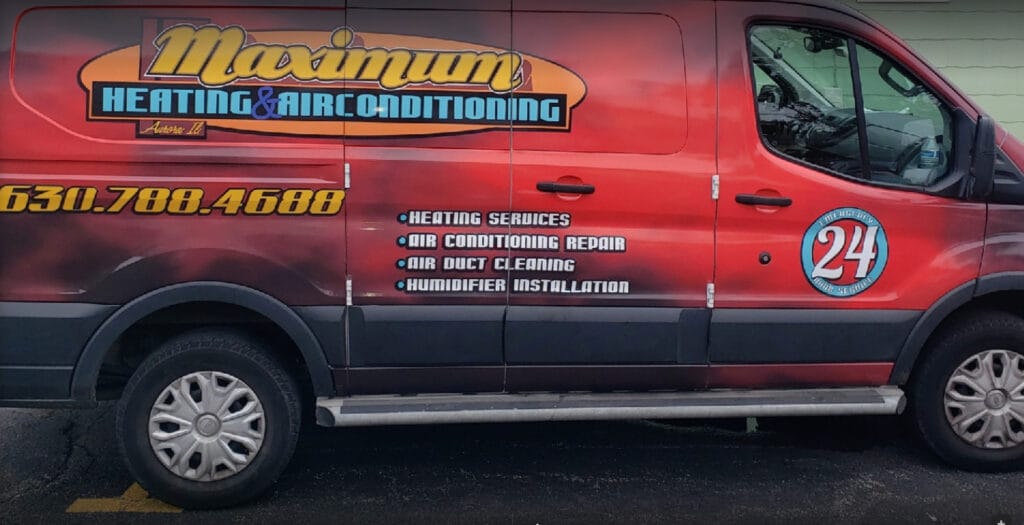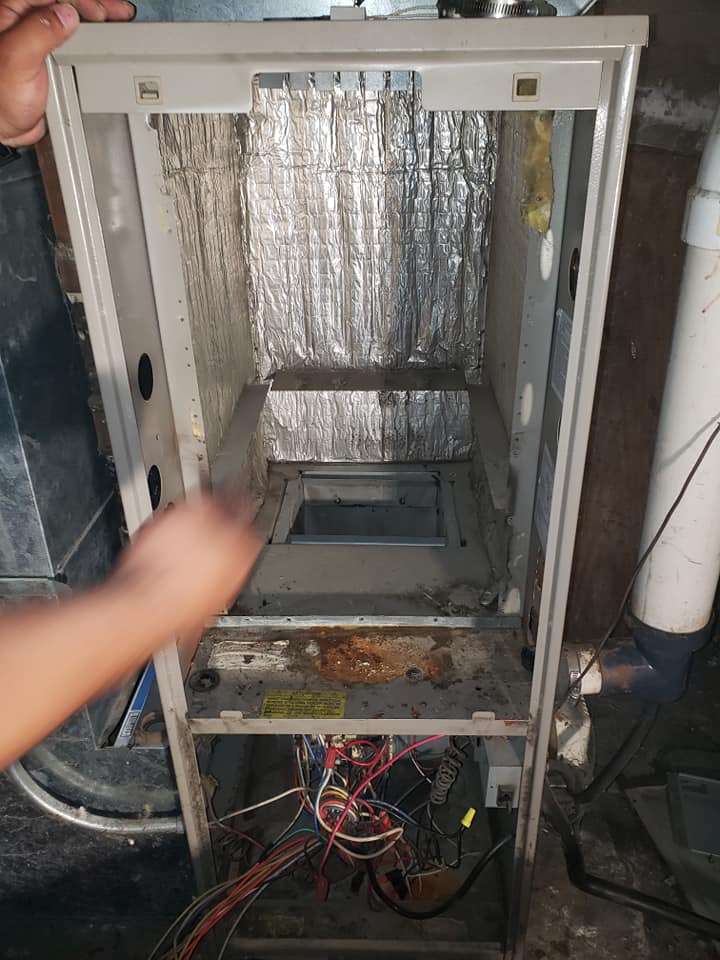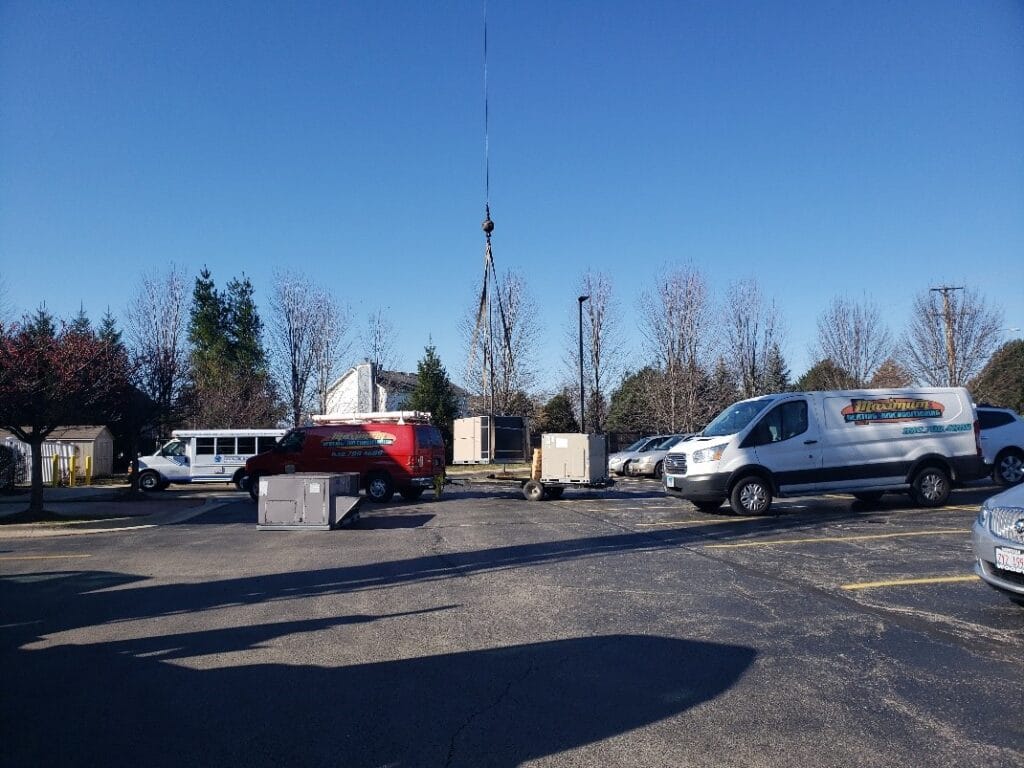Should You Close Your HVAC Vents? What Every Homeowner Needs to Know
When it comes to managing energy costs and comfort, some homeowners believe closing HVAC vents in unused rooms can save money and improve efficiency. While it may seem like a simple fix, this common practice could actually have the opposite effect, potentially straining your system and leading to higher energy bills.
At Maximum Heating & Air Conditioning, we’ve been helping Aurora and surrounding areas make smart HVAC decisions since 2001. In this blog, we’ll uncover the truth about closing vents, explaining the impact it can have on your heating and cooling system. Read on to learn whether closing vents is a wise move for your home and what you can do to maintain optimal comfort and efficiency.

Let’s look at some of the potential impacts of closing vents, including the effects on your HVAC system, air quality, and overall comfort in your home.
Consequences of Closing Vents in Your Home
Closing vents may seem like a quick fix to save on energy costs and manage airflow, but it’s not without potential repercussions. Before making the decision to close vents in unused areas of your home, consider the following problems it could cause.
Restricts Airflow
Your home’s HVAC system is carefully designed to deliver sufficient airflow to each zone to maintain a comfortable temperature throughout. When you choose to close one or more vents in your home, you’re essentially cutting off this airflow, causing pressure to build up inside the air ducts. This buildup of pressure eventually backs up into the home’s ductwork, which can lead to leaks.

Despite popular belief, closing vents in unused rooms doesn’t actually force air into other parts of the home. Instead, the excess air will often leak into unconditioned parts of the house, such as attic spaces and interior walls. In turn, the system is forced to work harder, which can result in problems like overheating of the heat exchanger or frozen coils that damage the system’s compressor.
Reduces Energy Efficiency
One of the most common reasons that people close their vents is to save on energy costs. However, this action could actually have the opposite effect. Closing your vents doesn’t save energy but rather wastes energy. HVAC systems are built to heat and cool homes according to size and the equipment doesn’t know that the vents are closed.
Without knowledge of the closed vents, the heating and cooling systems will continue to run until the home has reached the set temperature. If duct leaks develop due to excess air buildup in the ductwork, homeowners can actually experience increases in energy consumption and higher utility costs.

At Maximum, we strive to provide excellent customer service, which means helping our customers receive and maintain an HVAC system that meets their needs. Whether it’s a new AC installation that is more energy efficient or a temperature zoning control system that satisfies the whole family, we offer the services you need for a more comfortable and efficient home.
Creates High Static Pressure
HVAC systems are strategically designed to deliver a certain amount of air to maintain a safe amount of pressure within the ductwork. By closing vents in your home, you’re preventing air from moving freely and causing pressure to build. High static pressure can put excessive stress on the blower motor and force the unit to overwork as it must compensate for the high-pressure environment.
Static pressure in the air vents can lead to a wide range of problems, such as the creation of new leaks or causing small leaks to get worse. It can also make your HVAC system less efficient and cause potential damage to your heat exchanger, which can result in dangerous carbon monoxide leaks.

Disrupts Temperature Balance
You rely on your heating and cooling systems to keep your home comfortable. While it’s normal for your house to fluctuate a degree or two, too much fluctuation in temperature can make your home too hot or cold. This is a common occurrence for homeowners who close vents.
Closing one or more vents in a home disrupts airflow which in turn alters temperature balance. The room with the closed vent will often get too hot or too cold, depending on the season. This can make the area around the room more difficult to heat or cool as the hot or cold air seeks through cracks and crevices around doorways and windows.
Poses a Mold Risk
Houses require proper airflow and ventilation to prevent the growth of hazardous mold and mildew. When you prevent your HVAC system from working properly by closing vents, you can contribute to an environment where mold thrives. In addition, mold spores can easily spread into other areas of the room, exacerbating the problem.
While mold growth is a risk any time of year, it’s especially common in the warmer months. Condensation is created when cold air and warm air meet, leading to mold growth. For example, leaks in your ductwork during the summer can cause the hot and humid air in your attic to combine with the cool AC, which can lead to mold.

Shortens the System’s Lifespan
Your HVAC system was a major investment that you want to last as long as possible. Unfortunately, making choices like closing your vents could actually shorten your unit’s lifespan. Too much static pressure in the system can do more than cause hot and cold spots in the home. It can also lead to significant damage to the components of the unit.
The heat exchanger often suffers the brunt of the damage due to closed vents. It can overheat and crack over time, and potentially release carbon monoxide into the home. The permanent split capacitor (PSC) blower can also begin to slow down as it struggles to deal with the added pressure. In turn, the evaporator coil responsible for cooling the air in your home in the summer can get too cold and form ice.
The experts at Maximum employ certified technicians who can help you repair your damaged HVAC unit and often extend the lifespan of your heating and cooling system. If you would prefer a replacement, we also offer professional installation of high-quality systems and parts. Also, ask us about our financing options.
Increases Humidity Levels
High humidity levels can make your home feel uncomfortable and put undue stress on your heating and cooling systems. According to the Environmental Protection Agency, indoor humidity levels should remain between 30 and 50 percent and never exceed 60 percent. Closing vents can make it difficult to maintain healthy humidity levels.
When you run your air conditioning, the humidity inside your home is naturally lowered. However, closing a vent causes humidity to build up inside the unused room, which can cause dust mites and mold particles to accumulate. In addition to causing respiratory problems, the excess moisture in the room can impact the rest of the home.

What You Should Do Instead of Closing Vents
If you’re looking to be more energy efficient or save on your heating and cooling costs, there are better ways to do it than to close vents in your home. Begin by keeping the doors in your home open to maximize airflow. If you must close vents, do so only partially. Vents should never be more than 75 percent of the way closed to help keep air circulating without disruption.
You may believe that it’s okay to close vents in areas of your home that you wouldn’t normally heat or cool, such as an attic space or basement. However, this isn’t recommended. Your home’s HVAC system is designed to handle the unique climate control needs of these spaces and closing the vents could have the same consequences as closing vents in other rooms.
Instead of closing vents in your home, consider alternative solutions. For example, eliminating ductwork altogether and installing a ductless mini-split can give you greater control over the temperature of your home without the need for ducts. In the long term, many homeowners who use mini-splits actually save money on their utility costs.
Another option is to upgrade to a multi-zone HVAC system. This decision can help you control the temperature of individual rooms in your home, meaning you’ll have separate thermostats in different zones of the house.
If you’re looking for a more affordable solution, consider investing in a routine maintenance plan. Regular maintenance on your HVAC system can help your unit run more efficiently, extend its lifespan, and save you money in the long run. At Maximum, we offer Maximum Maintenance Program that includes a 12-point tune-up twice a year, discounts on all heating and AC service work, and many other benefits.
Trust Maximum for All of Your Plumbing, Heating & AC Service Needs
Your HVAC system is designed to keep your entire home comfortable, and closing vents can disrupt its balance, efficiency, and lifespan. Instead of sealing off airflow, consider alternative strategies like zoning systems or smart thermostats to enhance energy efficiency without harming your system.
If you have questions or concerns about your HVAC system’s performance, Maximum Heating & Air Conditioning is here to help. Since 2001, we’ve been the trusted HVAC professionals in Aurora and surrounding areas, providing expert guidance and reliable solutions. Contact us today at (630)788-4688 for advice or to schedule a service appointment—we’re dedicated to keeping your home comfortable and your system running smoothly.

